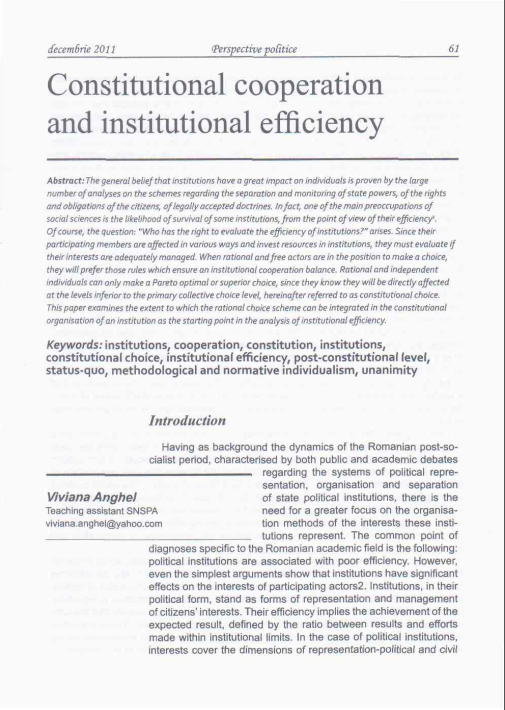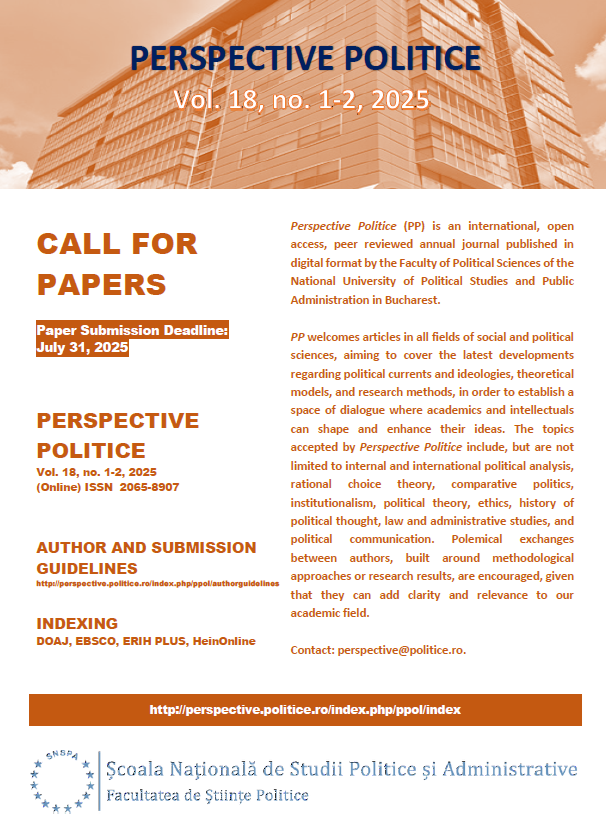Constitutional cooperation and institutional efficiency
Abstract
The general belief that institutions have a great impact on individuals is proven by the large number of analyses on the schemes regarding the separation and monitoring of state powers, of the rights and obligations of the citizens, of legally accepted doctrines. In fact, one of the main preoccupations of social sciences is the likelihood of survival of some institutions, from the point of view of their efficiency. Of course, the question: "Who has the right to evaluate the efficiency of institutions?" arises. Since their participating members are affected in various ways and invest resources in institutions, they must evaluate if their interests are adequately managed .When rational and free actors are in the position to make a choice, they will preps those woes which ensure an institutional cooperation balance. Rational and independent Individual can only make a Pareto optimal or superior choice, since they know they will be directly affected at the levels interim to the primary collective choice level, hereinafter referred to as constitutional choice. This paper examines the extent to which the rational choice scheme can be integrated in the constitutional organization of an institution as the starting point in the analysis of institutional efficiency.




